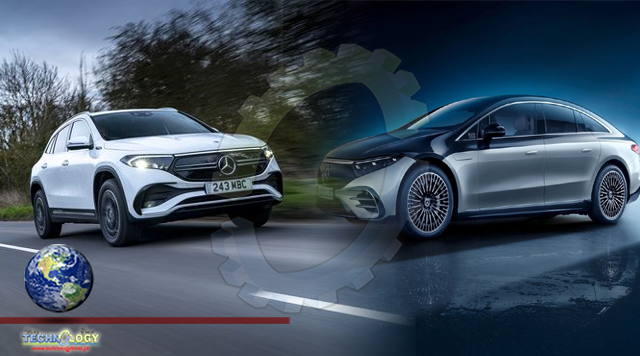Daimler AG’s Mercedes-Benz is ramping up its electric-vehicle to defend its position as the world’s best-selling luxury-carmaker through a historic industry transformation.

The shift towards electric vehicles is gaining momentum, especially in the luxury segment, Chief Executive Officer Ola Kalenius said in an emailed statement ahead of a strategy update on Thursday.
“The tipping point is approaching and we will be ready as markets switch to electric-only,” Kalenius said. Daimler’s EV strategy presentation is scheduled to begin at 1 p.m. Frankfurt time.
After years of criticism for delaying the adoption of fully battery-powered cars, earlier this year, the German manufacturer stepped up its game with the launch of the EQS, an electric version of its flagship S-Class. The sedan garnered praise from analysts and car reviewers for blending upscale appeal and a competitive range that challenges Tesla Inc.’s models.
Mercedes will build eight fully electric cars on three continents next year. It has been flaunting the EQS with models including the compact EQA and plans to unveil an electric version of its bestselling E-Class sedan at the Munich Auto Show in September.
So far, Mercedes has said it expects plug-in hybrid and fully electric cars to account for more than half of global car sales by 2030. By 2039, it aims to make its new-car fleet carbon-neutral.
The company has yet to provide a concrete date when it will phase out combustion engines because the speed of the shift toward batteries varies widely in different markets.
Daimler reiterated Wednesday that Mercedes is forecast to be more profitable in 2021 than it has been in years, thanks to strong demand and a shift toward higher-margin models that have been prioritized during the global semiconductor shortage. Despite heavy investments in EVs and other future technology, it anticipates an annual return on sales of between 10% and 12% for the cars and vans division.
The company cautioned this week that the adverse impact from raw material prices could intensify in the second half, and it may not be able to offset it with the same level of efficiency gains in the first six months.
The EV strategy update will be one of the last showcases for Mercedes, leading up to Daimler’s planned spinoff of its truck division, which it hopes to complete by the end of the year.
The company is splitting businesses in part because it believes they will pursue different paths on electrification, with passenger cars moving toward battery power and hydrogen fuel cells to play a bigger role in commercial vehicles. Chances are.
“We will be a buyer of Daimler before its truck spins at the end of the year,” Tom Narayan, an analyst at RBC Capital Markets, said in a report on Thursday. “By our math, you’d basically be getting the cars business for free.”
Originally published at Business hala